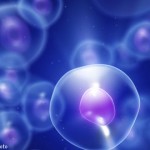Although CD19 therapy eliminates many antibodies, there are certain antibodies it does not eliminate, perhaps because those antibodies are produced by long-lived plasma cells known to be CD19 negative.
Dr. Radic explained that even when patients responding to anti-CD19 therapy experience highly effective B cell depletion in secondary lymphoid organs, they continue to have persistent long-lived plasma cells and humoral immunity.2 These findings have raised awareness that therapies designed to eradicate pathogenic humoral immunity will likely need to address the CD19-negative, long-lived plasma cells.
Dr. Radic then described his laboratory’s research using anti-CD19 CAR T cells in the MRL-lpr strain of mice that develops lupus-like disease, predominantly in female mice. He and his colleagues depleted CD19 B cells in NZB/W and MRL-lpr mice using anti-CD19 CAR T cells and were able to achieve B cell depletion for more than one year.
When the researchers compared CAR-treated and control MRL-lpr mice, they found that CAR-treated mice had decreased anti-DNA antibodies and decreased anti-histone antibodies. Depletion of CD19+ B cells not only significantly reduced serum anti-DNA titers, it also decreased glomerular immune complex deposits, reversed proteinuria, healed skin lesions and extended lifespans. Moreover, anti-CD19 CAR T cells were effective in animals that had developed progressive disease, even after six weeks of high-grade proteinuria.
When the investigators further examined the IgG serology of CAR-treated MRL-lpr mice, they found that although anti-ribonucleoprotein (RNP) autoantibody-producing clones remained in CAR-treated mice, mice with anti-RNP autoantibodies did not show any detectable pathology. It thus appeared that CAR T cells efficiently depleted pre-B cells in the bone marrow while at the same time allowing long-lived anti-RNP plasma cells and immunization-elicited B cells (such as to ovalbumin) to remain functional.
Although CD19 therapy eliminates many antibodies, there are certain antibodies it does not eliminate.
An important implication of these results is that secretion of anti-DNA autoantibodies may depend on continuous production of CD19+ plasmablasts.
When Dr. Radic and colleagues performed flow cytometry of CAR-treated MRL-lpr mice as well as tissue histochemistry, they found consistent improvement in tissue pathology in mice receiving anti-CD19 CAR T cell treatment, and overall the pathologists saw a much worse presentation of disease in the control mice. Moreover, the researchers found that the CAR T cells could be serially transferred to naive mice to ameliorate lupus.
Dr. Radic concluded his presentation by suggesting there are certain disease conditions for which rituximab (an antibody against the B cell marker CD20) is in clinical trials, but for which CAR T might offer certain advantages. He believes anti-CD19 CAR T cells represent an attractive therapy for lupus. He noted, however, that patenting and intellectual property issues may sideline investors.
